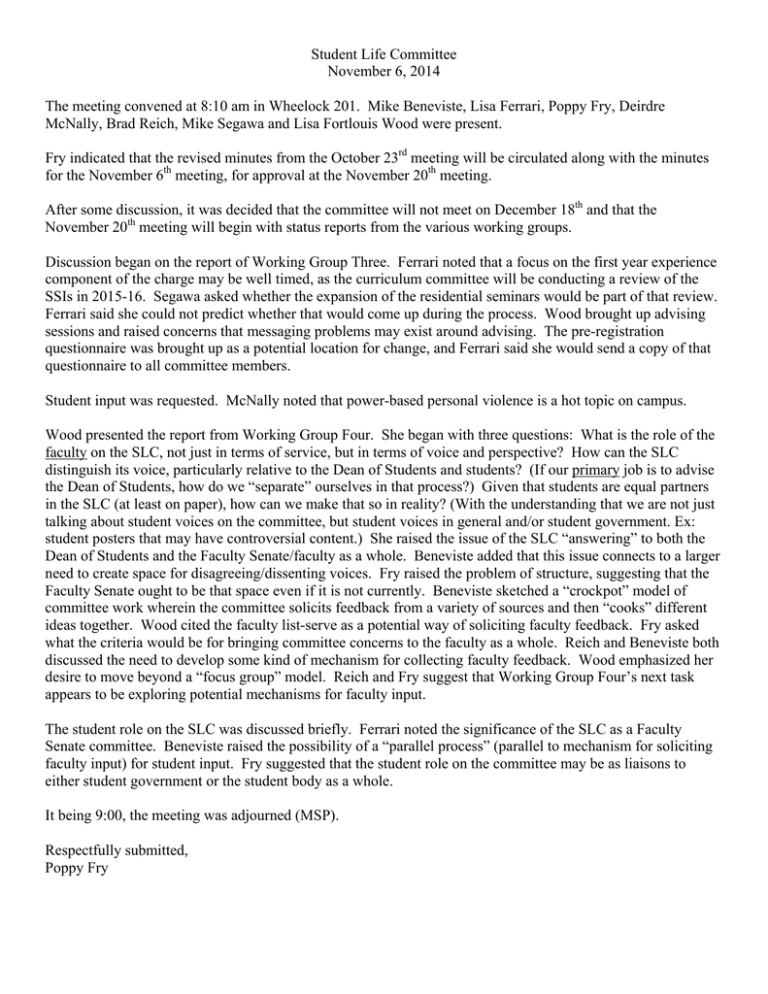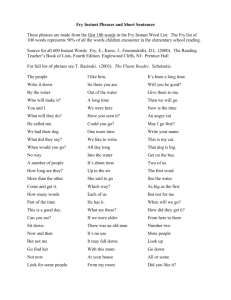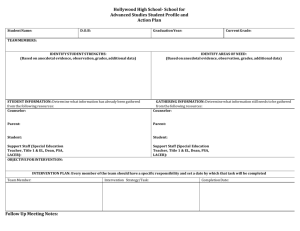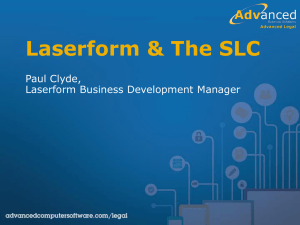Student Life Committee November 6, 2014
advertisement

Student Life Committee November 6, 2014 The meeting convened at 8:10 am in Wheelock 201. Mike Beneviste, Lisa Ferrari, Poppy Fry, Deirdre McNally, Brad Reich, Mike Segawa and Lisa Fortlouis Wood were present. Fry indicated that the revised minutes from the October 23rd meeting will be circulated along with the minutes for the November 6th meeting, for approval at the November 20th meeting. After some discussion, it was decided that the committee will not meet on December 18th and that the November 20th meeting will begin with status reports from the various working groups. Discussion began on the report of Working Group Three. Ferrari noted that a focus on the first year experience component of the charge may be well timed, as the curriculum committee will be conducting a review of the SSIs in 2015-16. Segawa asked whether the expansion of the residential seminars would be part of that review. Ferrari said she could not predict whether that would come up during the process. Wood brought up advising sessions and raised concerns that messaging problems may exist around advising. The pre-registration questionnaire was brought up as a potential location for change, and Ferrari said she would send a copy of that questionnaire to all committee members. Student input was requested. McNally noted that power-based personal violence is a hot topic on campus. Wood presented the report from Working Group Four. She began with three questions: What is the role of the faculty on the SLC, not just in terms of service, but in terms of voice and perspective? How can the SLC distinguish its voice, particularly relative to the Dean of Students and students? (If our primary job is to advise the Dean of Students, how do we “separate” ourselves in that process?) Given that students are equal partners in the SLC (at least on paper), how can we make that so in reality? (With the understanding that we are not just talking about student voices on the committee, but student voices in general and/or student government. Ex: student posters that may have controversial content.) She raised the issue of the SLC “answering” to both the Dean of Students and the Faculty Senate/faculty as a whole. Beneviste added that this issue connects to a larger need to create space for disagreeing/dissenting voices. Fry raised the problem of structure, suggesting that the Faculty Senate ought to be that space even if it is not currently. Beneviste sketched a “crockpot” model of committee work wherein the committee solicits feedback from a variety of sources and then “cooks” different ideas together. Wood cited the faculty list-serve as a potential way of soliciting faculty feedback. Fry asked what the criteria would be for bringing committee concerns to the faculty as a whole. Reich and Beneviste both discussed the need to develop some kind of mechanism for collecting faculty feedback. Wood emphasized her desire to move beyond a “focus group” model. Reich and Fry suggest that Working Group Four’s next task appears to be exploring potential mechanisms for faculty input. The student role on the SLC was discussed briefly. Ferrari noted the significance of the SLC as a Faculty Senate committee. Beneviste raised the possibility of a “parallel process” (parallel to mechanism for soliciting faculty input) for student input. Fry suggested that the student role on the committee may be as liaisons to either student government or the student body as a whole. It being 9:00, the meeting was adjourned (MSP). Respectfully submitted, Poppy Fry




